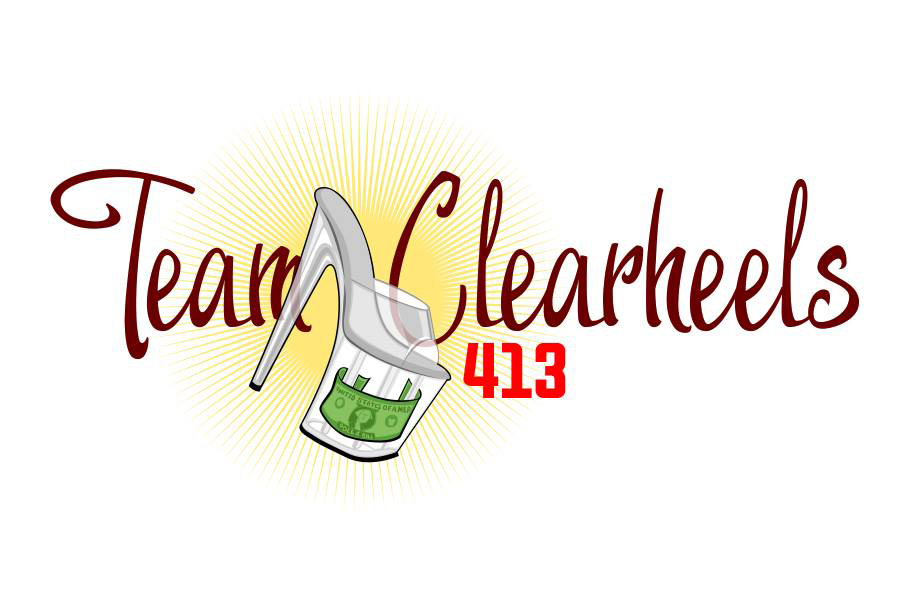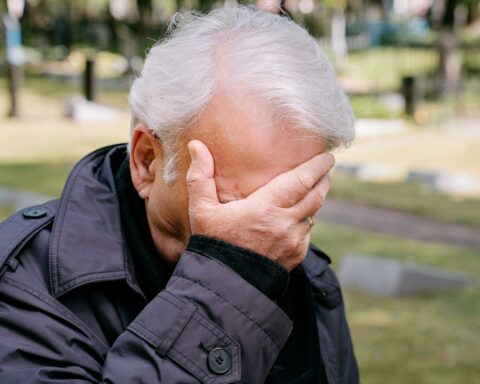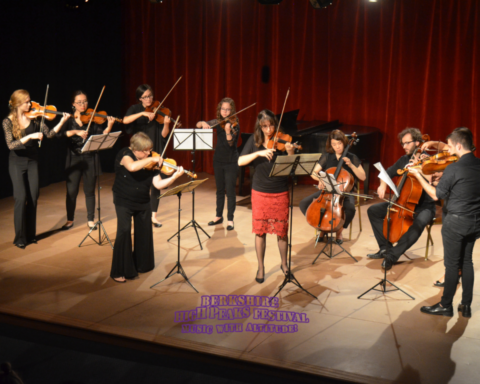You may have missed the International Day for the Elimination of Violence against Women (IDEVAW) this year. It passed by without much fanfare in the U.S. If you happen to be a subscriber to the Trinidad Express or the Bendigo Advertiser (serving the towns of Bendigo, Jackass Flat, and others in Victoria, Australia) you’d have known that this day, designated by the United Nations in 1999 to encourage action defending women’s human right to be free from violence and abuse, was observed on November 25.
MEMBERS ONLY CONTENT AVAILABLE
NOTE: Greylock Nation Members at the “Zinger” level and up can enjoy the full-length audio and transcript of our interview with Bella Vendetta HERE. A VERY enjoyable 30 mins. Be sure to log in for access!
Not simply a solitary date shoehorned in at the bottom of the calendar, IDEVAW kicks off “16 Days of Activism against Gender-Based Violence.” Human Rights Day, December 10, caps off the run. As with IDEVAW, however, the two weeks–plus of activism has gone largely unremarked on in the Western press.
It may be that, here in the States, media portrayals of women’s status shows a progress ever bending towards equity. After all, an unprecedented 42 women will be sworn in as new members of Congress in January. In 2018, the wrath of the #MeToo movement has spurred on the takedown of several more (though not enough) high-powered exploiters, harassers, and ass-grabbers in media, business, and government. Highlighting the global nature of gender parity gains, television networks showed a repetition of clips of attractive, young, cosmopolitan women, cruising the streets of Riyadh in luxury cars after Saudi Arabia’s prohibition against female drivers ended this Summer.
The lists of missing details and points of context are long with each of these stories. One thing they all have in common, though, is that they present an image of improvement to the lots of women in a uniform evolution across racial, economic, and geographic groups. Absent from the optimistic portrayals of progress are various groups of women due to oversight, willful exclusion, or the women’s own need for anonymity.
Sex work a varied category
Sex workers, whose numbers do contain plenty of men and non-female identifying folks, are nonetheless women by a large majority. And that fact helps to accentuate that the International Day to End Violence Against Sex Workers falls outside, by a full week, the 16 Days of Activism against Gender-Based Violence. Like sex workers had to wait for the collective convention center of compassion to empty out before they could hold their own conference to elevate their concerns.
Sex work is a term to describe a fairly, uhhh… fluid set of activities. The Sex Worker Outreach Project (SWOP) defines sex work as “any type of labor where the explicit goal is to produce a sexual or erotic response in the client.” Out-and-out prostitution may come to mind first, but erotic dancing, professional dominance/submission services, webcam performance, sensual massage, adult films, and phone sex all fall under the category.
Exotic dance is likely the most publicly acknowledged form of sex-work, due simply to the highly visible (lit, literally, in neon lights) nature of the physical presence of strip or “gentlemen’s” clubs across the country, both in congested urban settings and tucked away at the edge of cornfields in rural America. Western Massachusetts has ‘em both. And despite the large number of dancers who rotate across the stages, up until recently, no organization existed to look out for the welfare of the performers.
Bella Vendetta, who founded the Western Mass –based advocacy group, Team Clearheels 413, to address issues faced by local dancers, said, “I’ve been a stripper in the Western Mass area working in the clubs all over New England for 12 years now. So I’ve worked at pretty much every single club there is to work at. I’ve got my favorites and I’ve got the ones that I have problems with.”
That length of involvement in the industry gave Vendetta the insight she needed to recognize an opportunity to foster change.
Team ClearHeels 413 — Holiday Fundraising Party and Raffle
Dugout Cafe
134 Meadow Street • Chicopee, Massachusetts
Fundraising party OPEN to the public!
Raffles, raffles, raffles galore!
Many local businesses and artists donating great stuff
100% of the profits from raffle tickets sold will go to the group
and to secure funds to continue doing the work into 2019.
Can’t be at the event, but want to make a difference in a dancer’s life? Send Team Clearheels an e-mail.
Exotic dance community in Western Mass lacks access to support services
“I started realizing how many clubs we really had around here—and how many dancers did that mean?” she says she wondered. “This means we have a workforce of 1000 or more people in a very small area. And that’s a large workforce and we don’t have any community service. We don’t have anyone targeting services towards these workers. We don’t have anyone checking up on the labor violations that are occurring.
Hollywood has created a mixed perception of the world of exotic dance, sometimes portraying the lives of dancers and glamorous, other times depicting dancers as irredeemable harlots in psychological and moral free-fall. Both blurred visions obscure the fact that many dancers’ are dependent upon club managers’ integrity, which leaves them vulnerable to predators in many of the same ways as are those in the broader sex worker community.
The World Health Organization, in 2013, identified some of these perils internationally:
• having money extorted
• being denied or refused food or other basic necessities
• being refused or cheated of salary, payment or money that is due to the person
• being forced to consume drugs or alcohol
• being arbitrarily stopped, subjected to invasive body searches or detained by police
• being arbitrarily detained or incarcerated in police stations, detention centres and rehabilitation centres
without due process
• being arrested or threatened with arrest for carrying condoms
• being refused or denied health-care services
• being subjected to coercive health procedures such as forced STI and HIV testing, sterilization, abortions
• being publicly shamed or degraded (e.g. stripped, chained, spat upon, put behind bars)
• being deprived of sleep by force.
In Massachusetts, exotic dance may be legal, but the social stigma attached to the profession discourages performers from seeking assistance for a number of issues from violence to addiction to poverty.
“So, I decided, let’s start just doing meeting for strippers,” said Vendetta. “The second hurdle of how to tell people about it, because the clubs didn’t want there to be any— they don’t want you to organize, you know.”
Strip club owners concerns aren’t entirely without merit. While organizing attempts within clubs have rarely been successful, they have happened. The Lusty Lady, for example, a now defunct women-run peep show parlor in San Francisco, unionized in 1997 with the Service Employees International Union. Writing for The Atlantic upon the clubs closure in 2013, Lily Burana described a sense of empowerment not found in any other strip joint in the country. A sense of empowerment might be good for dancers, but likely not so welcome in environments typically engineered to place all the cards in the hands of the men who typically own and run them
Organizing exotic dance advocacy groups a challenge
“They’re afraid that we’re going to unionize,” explained Vendetta, “and that we’re going to come together, because they know that so many of the things that are happening are complete labor violations, and are wrong, so, really, it’s in their best interest to keep us disconnected from each other. And I think when they found out that we were organizing, they got a little bit scared. And the first reaction was to not let it happen. They weren’t going to give us any space within the club to organize together, to share information. They weren’t going to let us put up flyers or or let other people know about the meetings.”
By finding allies on the outside, however, Vendetta was able to start putting together a loose organization of dancers and advocates to address some of the most immediate needs.
“I managed to get some different organizations on board with us that had pull—places like Tapestry Community Health, Planned Parenthood, the Victims Rights Law center, and so on. And these places kind of lent me a legitimacy that I didn’t have before, when I could approach clubs and say, “You know we’re not trying to unionize, we’re not trying to do anything that’s going to harm business.”
Risk factors, hazards for strippers similar for other sex workers with more support
Harm-reduction was always Vendetta’s concern—preventing the job from becoming a grinder that chews up people who may already be experiencing pressures and obstacles to physical and mental health.
“A lot of the common themes that I was seeing,” she said, “were that people were facing addiction issues, people were facing domestic violence, people were facing sexual assault in and outside of the club. And the common theme of all of those traumatic experiences was that no one felt safe going forward to talk to someone because we’re dancers. Because we’re told that because we do this job, we should expect these things to happen to us.”
Vendetta noted that sex work outreach projects exist in other places in the country and world, but not in Western Massachusetts. Some organization do provide services to other types of sex workers, she said, but discouraged strippers under the premise that dancing is work done more by choice, and less deserving of support. To promote a perception of stripping as vastly more privileged than, say, prostitution, and less worthy of concern, Vendetta suggested, may be to overstate the status of the trade to a damaging degree.
“There’s a lot of reasons that it’s a lot more privileged than other types of sex work,” she acknowledged, “however, just because someone’s a stripper doesn’t mean that they’re privileged. And a large intersect of who’s actually working in the clubs in Western Massachusetts are people living in poverty, and they don’t feel very privileged.
So she started Team Clearheels 413 specifically for the dancers. After the first couple of meetings, Vendetta said, the group had a pretty good idea of the issues that needed their immediate attention.
Overdose prevention a top priority
“The first priority,” she said, “was to offer free testing and free safe-sex tools to anyone that came to meetings. And the other big piece of this—and why it felt urgent to do this—was that we’ve experienced a huge number of overdoses and deaths in the dancer community in western Massachusetts. And I began to think about, you know, if the number reached above 20 of like, bankers, that overdosed in Western Mass in a year, you would think that you’d hear about that on the news, and that banks would be doing something, and maybe offer some trainings and maybe get some counseling, grief counseling to people who’ve lost co-workers, but that wasn’t happening here. It was just being swept under the rug.”
World Health Organization
2012 Good Practice Recommendations
1. All countries should work toward decriminalization of sex work and elimination of the unjust application of non-criminal laws and regulations against sex workers.
2 Government should establish anti-discrimination and other rights-respecting laws to protect against discrimination and violence, and other violations of rights faced by sex workers in order to realize the human rights and reduce their vulnerability to HIV infection and the impact of aids. Anti-discrimination laws and regulations should guarantee sex workers’ right to social, health, and financial services.
3. Health services should be made available, accessible, and acceptable to sex workers based on the principles of avoidance of stigma, non-discrimination, and the right to health.
4. Violence against sex workers is a risk factor for HIV and must be prevented and addressed in partnership with sex workers and sex worker-led organizations.
A 2011 study by the National Institutes of Health, “More than a dance: The production of sexual health risk in the exotic dance clubs in Baltimore, USA,” detailed many of the risk factors present in the dancer community.
The report notes that, “dancers began working in exotic dance clubs primarily because of financial need and lack of employment opportunities, and to a lesser extent, the need to support illicit drug habits.” The authors found, in fact, that a full 20% of dancers in a section of Baltimore known as “The Block” reported current use of heroin or crack/cocaine.
“So it became really urgent for me to get Narcan in the clubs,” said Vendetta, “and in the hands of people who needed it and get them trained in how to use it, so that was the first kind of battle that we won, just by being persistent. And it started off literally, with me, like working in a club and putting a sign on the locker that says ‘This locker contains Narcan—Please break lock in case of emergency.’ Then, that was taken down because [the managers] didn’t want to be seen as having a problem with drugs in the club, because that’s bad for the image.”
But the problem, Vendetta believes, isn’t simply the presence of drugs. She sees it as a place where addiction and sex work intersect with poverty. Dancers in the NIH study described drugs and booze as coping mechanisms that dampened the effects of their physically and emotionally demanding jobs, made more difficult by complete lack of privacy and manipulative, at times abusive managers and co-workers. Drinking with customers, and thereby increasing sales for the clubs, is a standard requirement for dancers, which, pretty quickly into a shift, can put them at risk not only of mistreatment by patrons, but also wage theft by management. The easy availability of drugs within the community makes it that much easier for a dancer to add them to the list of self-medications.
“And it’s in every community,” Vendetta says. “And so then we just started finding stash spots in clubs and putting the word out there, you know, ‘Under this sink is always going to be Narcan and gloves’ or whatever it is. And then we were able to start offering needle exchanges and Narcan through Tapestry Community health. So that was a big game changer for us, too—being able to get Narcan for free and give it out for free to people who needed it has been huge.”
As helpful as Team Clear Heels 413 partner organizations have been, the challenge will always be to keep the community of dancers engages and coming back both to contribute and to take advantage of the support available. That community is large but spread out over a the relatively vast area of Western Massachusetts, which makes participation difficult.
Making support accessible to all Western Mass dancers a challenge
“So when we do these meetings,” said Vendetta, “the most immediate need was that we had to find a space that was in downtown Springfield, because that’s where most of the clubs are, most of the workers are, and most of the people don’t have transportation. So we had to get them there. So we need funds for that. And a lot of people are also single mothers that are working, and so we need childcare for them to be able to come to these meetings. So we need funds for that. And we generally have a hot meal ready for people, and we need funds for that. And I feel like everything we do requires funds. So, we’ve gotten a lot of the organizations that I spoke of that have been helping us—some of the therapists we’ve gotten, some massage therapist, tattoo artists, artists, jewelry makers, costume designers to donate a bunch of really amazing items and we’re going to raffle things off on December 9 at the Dugout Cafe in Chicopee, Massachusetts for our fundraiser.
Vendetta herself will be leaving the Team Clearheels 413 soon, she says, because after a dozen years on stage, she’s ready to open a new chapter of her career—one that won’t be a perfect fit with the part of activist and organizer.
“It’s been long enough,” says Vendetta. “I’m getting older, I’ve got some chronic illness issues, and I’ve got other ways of making income that I feel more effective at at this point, and this work is important, and I don’t want to stop doing it, so I announced nothing to stop dancing, and I had my last day of dancing at Club Castaway. It’s a smaller club, it’s more rural, and the owner and I talked—he was quite sad, that I was going to be leaving—and I said, ‘I’m more effective to you as a manager,’ and he agreed, so I’m going to be managing Club Castaway, starting in December…And so it’s become a little bit like, maybe inappropriate for me to lead the dancer meetings.”
How does Vendetta think the advocacy organization she founded will fare as she moves into her new role?
“I know that I’ve planted the seed in a lot of people’s minds,” she mused. “And I’m really confident in the people who are going to pick up doing that are super-motivated and excited to do this. And they’ve been waiting for an opportunity like this, and the roots are already there now. So you know, I’ve done a lot of the legwork, and one of the big pieces is having space to be able to organize. And if I am managing a club, I can certainly offer a space for people to organize. So I have a lot of faith that the work will continue, just in a different way.”


















You must be logged in to post a comment.